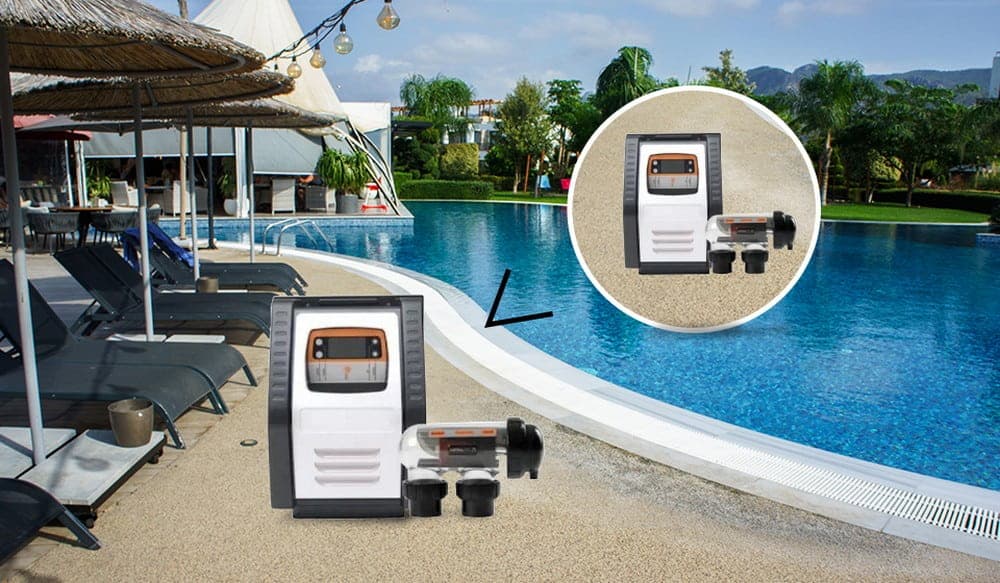
Owning a swimming pool can bring endless enjoyment, from relaxation and recreation to low-impact exercise. But maintaining a clean, safe pool requires effort, and one of the most effective tools in achieving this is a salt water chlorinator for swimming pools. With saltwater pools growing in popularity, selecting the right chlorinator has become a critical consideration for pool owners. This comprehensive guide explores how saltwater chlorinators function, key factors to evaluate when choosing one, and how the right system can enhance your swimming experience while simplifying maintenance.
Understanding Saltwater Chlorinators
A salt water pool chlorinator operates by converting salt into chlorine through a process called electrolysis. Salt (sodium chloride) is added to the pool water, and as it flows through the chlorinator’s electrolysis cell, an electrical current breaks it down into sodium and chlorine. The chlorine sanitises the water by killing bacteria and algae, just like in traditionally chlorinated pools.
However, unlike manual chlorination, this process is continuous and automatic. This means you don’t have to add chlorine manually as often, resulting in more stable chlorine levels and fewer harsh chemical effects. The water in saltwater pools is also gentler on the skin, eyes, and hair, making swimming more comfortable.
Key Considerations When Choosing a Saltwater Chlorinator
Pool Size and Capacity
The first factor to consider is the size of your pool. Chlorinators are rated to handle specific water volumes. Choosing a system that’s too small will lead to insufficient chlorination, while an overly large unit may lead to inefficiency and increased energy consumption.
Measure your pool’s volume in gallons or litres, then consult product specifications to match the chlorinator’s capacity with your pool size. Ensuring the right fit helps maintain balanced chlorine levels and water clarity.
Electrolysis Cell Quality
The electrolysis cell is the heart of a chlorination system. These salt water pool chlorinator cells are typically made with corrosion-resistant materials like titanium, often coated with rare metals to improve efficiency and longevity. As water passes through the cell, chlorine is produced and delivered into the pool.
High-quality pool chlorinator cells offer better durability and performance. The efficiency of the salt chlorinator cell influences how much chlorine is generated and how often the system needs to run. A robust, well-built electrolysis cell can reduce long-term operating costs and ensure consistent sanitisation.
Self-Cleaning Capabilities
Calcium build-up and scale formation can impair the performance of the chlorinator over time. Many modern salt water pool chlorinators feature self-cleaning technology that periodically reverses polarity to clean off accumulated scale automatically.
This functionality not only extends the life of the electrolysis cell but also reduces maintenance efforts. With self-cleaning features, you can enjoy cleaner water without constantly opening the unit for manual cleaning.
Advantages of Using a Salt water Chlorinators for Swimming Pools
Reduces Use of Harsh Chemicals
Traditional pools require the regular addition of chlorine tablets or liquid chlorine, which can be harsh and sometimes unpleasant. Swimming pool salt chlorinator generates chlorine naturally and steadily, reducing the need for external chemical treatments.
This results in water that is less irritating to swimmers. The risk of strong chemical odours and stinging eyes is minimised, creating a more enjoyable swimming environment for both children and adults.
Creates a More Balanced Pool Environment
Because the chlorinator operates continuously, chlorine levels remain more consistent. This stability reduces the chances of under- or over-chlorination, leading to fewer chemical fluctuations that can damage pool equipment or disrupt swimmer comfort.
Stable chlorine levels also improve the longevity of your pool’s surfaces and accessories, such as liners, ladders, and heating systems, by preventing corrosion or buildup caused by fluctuating chemicals.
Lower Maintenance Requirements
Saltwater systems are designed to automate pool sanitisation, which significantly reduces the need for manual monitoring and chemical dosing. With a reliable chlorinator, you won’t have to test water or adjust chlorine levels as frequently.
Furthermore, systems with self-cleaning salt water pool cells mean less hands-on maintenance. This frees up your time so you can focus on enjoying the pool rather than maintaining it.
Versatile for Various Pool Types
Salt water pool chlorinator can be used in a wide range of pool configurations, including inground, above-ground, and even plunge or lap pools. Whether your pool is small and residential or larger for entertainment, there are chlorinators available in different sizes and feature sets to meet your specific needs.
Many systems are also compatible with both vinyl and concrete pool finishes, offering flexibility no matter your pool’s construction.
Integrating the Right Pool Design with the Right Pool Builders
Whether you’re installing a salt chlorinator for the first time or renovating your entire pool, partnering with experienced pool builders in Geelong is essential for optimising the performance and efficiency of your pool systems. Skilled builders don’t just install equipment—they design the entire pool layout to work in harmony with it.
From the placement of the salt water chlorinator cell to the flow dynamics created by the plumbing and circulation systems, every design decision impacts how well your pool operates. By integrating equipment like chlorinators, filters, and above-ground or inground pool pumps into the initial design phase, pool builders ensure that these systems run efficiently, reduce energy consumption, and require less maintenance over time.
In the End
Investing in a saltwater chlorinator is a practical step towards enjoying your pool more and maintaining it less. From the gentle feel of the water to the reduced need for chemical treatments and hands-on upkeep, a saltwater system transforms pool ownership. Whether you’re building a new pool or upgrading an existing one, understanding the benefits and choosing the right chlorinator can ensure your swimming experience is as effortless as it is enjoyable.








